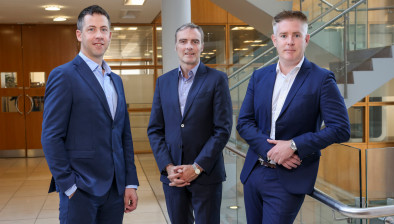Court of Appeal: Petitioners in unsuccessful examinership application ordered to pay half of opposing creditor’s costs

Killian Flood BL
The Court of Appeal has ruled that the petitioners to an unsuccessful examinership application must pay 50 per cent of the opposing creditor’s costs in the proceedings.

About this case:
- Citation:[2021] IECA 151
- Judgment:
- Court:Court of Appeal
- Judge:Mr Justice Maurice Collins
In reaching this conclusion, the court accepted that there was an important public interest aspect to the proceedings but that proper weight had to be given to the trial judge’s decision to award full costs.
The petitioners had argued that the proper costs ruling would be no order as to costs due to the legislative purpose of the examinership process. While Mr Justice Maurice Collins indicated that he might agree with that assessment in a de novo hearing, he held that he was required to give a degree of deference to the trial judge’s original decision.
Background
The petitioners had founded the company, Openhydro Group Limited, in 2004 and were minority shareholders. The main creditors, Naval Energies SAS and Naval Group SA, owned 71 per cent of the company and had provided substantial financing of more than €260 million to Openhydro. The company specialised in the design of marine turbines to create renewable energy.
In 2018, the creditors decided to remove funding from Openhydro and appointed liquidators to the company. The petitioners then brought an application to enter the company into examinership and an interim examiner was appointed. Ultimately, the examinership application was refused in the High Court and it was ordered that the company should be wound up.
The petitioners appealed the decision to the Court of Appeal, with the costs of the High Court proceedings left over to the future. During the course of the appeal, a catastrophic failure occurred in the company’s turbines based in Nova Scotia which meant that all potential investor interest disappeared. As such, the appeal was rendered devoid of substantial merit and the appeal was withdrawn.
The Court of Appeal (Mr Justice Michael Peart) determined that there should be no order as to costs for the appeal. The court said that it was a bona fide appeal that only became moot after the unfortunate events happened. The court also said that the public interest nature of the examinership legislation meant that costs should not be ordered against the petitioners.
Finally, the case returned to the High Court for final costs orders to be made in the original proceedings. The court heard two days of legal submission, before determining that the full costs order should be made against the petitioners. The court did not provide detailed reasons for the decision.
The petitioners appealed this costs order to the Court of Appeal, arguing that the public interest contained in the examinership process required no order as to costs to be made. The creditors opposed the appeal.
Court of Appeal
In the Court of Appeal, Mr Justice Collins began by outlining the general principles which were applicable to costs decisions. The court noted that the case concerned the old costs regime. Citing Veolia Water UK plc v. Fingal County Council (No. 2) [2006] IEHC 240, the court held that the default position is that costs follow the event, notwithstanding the inherent discretion of a trial judge to award costs as it sees fit. However, Mr Justice Collins held that a court was not “at large” when it came to costs orders and that appropriate principles must be applied in reaching a decision.
The court held that, while a different approach to examinership costs was not set out explicitly in the Companies Act 2014, there was still authority to show that certain company law applications fell to be treated differently.
Mr Justice Collins also held that the proper approach to the appeal was to give weight to the trial judge’s decision to award full costs because an appeal court should be slow to interfere with a trial judge’s discretionary decision. However, he also held that the court had to exercise its own discretion as to the appropriate costs order, because the trial judge had failed to set out her reasons for her decision (Donegal Investment Group plc v Danbywiske [2017] IESC 14; O’ Driscoll v Hurley [2015] IECA 158).
The court also considered the examinership regime itself, stating that it differed significantly from ordinary litigation and that there was a substantial public interest element to such proceedings. The court endorsed the views of Mr Justice Peart that special considerations applied to the adjudication of costs in examinership applications. Further, the court held that imposing costs liabilities on petitioners may undermine the policy objectives of the examinership process.
While the examinership process did not exclude the possibility of costs being ordered against an unsuccessful party, the outlined factors “certainly weigh against any reflexive application of the normal rule that costs should follow the event in proceedings such as this,” the court said.
As such, the de facto position that costs follow the event had “little force in this context” particularly where costs were not usually ordered against creditors. The court did not accept a submission that creditors have a statutory right to be heard and therefore should be exempt from costs, stating that creditors are not obliged to appear in such cases. Further, the court noted that proceedings can be made much more expensive depending on the opposition of creditors. Considering these points, the court held that it was “anomalous – and unfair” that creditors could receive their costs from petitioners but would not be liable if their opposition was unsuccessful.
Although the court held that the failure of the petition was a material factor in the case, the court did not accept that the application was “doomed to failure.” The application was supported by an experienced examiner’s report and there was no suggestion by the trial judge that the application was frivolous or presented in bad faith.
The court ultimately determined that the creditors were entitled to 50 per cent of their costs against the petitioners. In reaching this decision, the court held that it should give appropriate weight to the decision of the trial judge to award full costs. However, Mr Justice Collins stated that he may have awarded no order as to costs if it were a de novo hearing, having regard to his previous analysis.
Conclusion
The court awarded 50 per cent of the costs to the creditors. The court also stated that its provisional view was that 50 per cent of the costs of the appeal should be awarded to the creditors, having regard to the part-success of the appeal.









